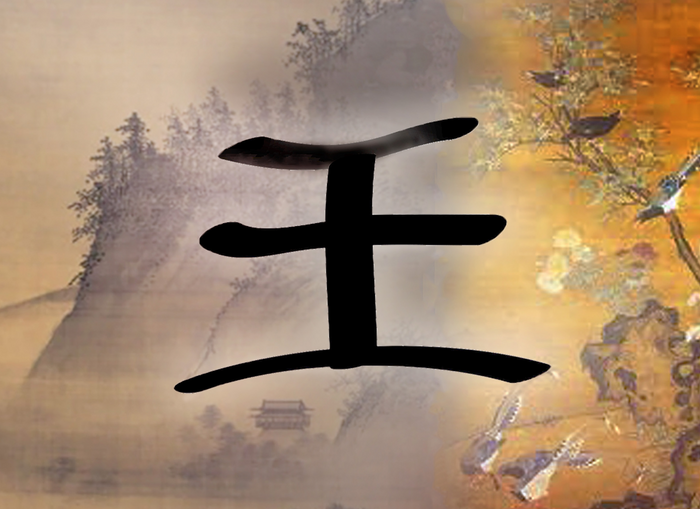UNIVERSITY PARK, Pa. — Ancient Chinese texts can offer insights into contemporary issues if examined from the right perspective, according to Xiaoye You, Liberal Arts Professor of English and Asian Studies at Penn State.

Credit: Patrick Mansell / Penn State
UNIVERSITY PARK, Pa. — Ancient Chinese texts can offer insights into contemporary issues if examined from the right perspective, according to Xiaoye You, Liberal Arts Professor of English and Asian Studies at Penn State.
You’s new book, “Genre Networks and Empire: Rhetoric in Early Imperial China,” examines letters, court edicts, commentaries and other documents from the Han dynasty (206 B.C. to 220 A.D.) using a “third space” perspective. The approach studies the texts from both ancient Chinese and Western cultural lenses to better understand how the Han rulers used rhetoric to build and maintain an empire.
“If you study ancient Chinese rhetoric solely from a Western perspective, you tend to see what you already have in mind,” said You. “It is unavoidable to bring in an American or Western perspective, but to understand ancient Chinese rhetoric it’s necessary to step into the ancient Chinese perspective as much as possible and use their terms, concepts and logic. The perspective that I’m using to write about non-Western texts in the United States is not completely American, not completely Chinese, but a third space that allows the two perspectives to come together.”
The research, said You, can help shed light on contemporary issues.
Legitimacy questions
When the Han came to power, somewhat ordinary people found themselves ruling an empire that at its peak covered an area nearly half the size of the United States. The title of emperor came with many responsibilities and stress, especially regarding questions of legitimizing imperial power.
“Oftentimes, Han emperors wrote announcements that would say: ‘I fall asleep late and rise early. I work so hard. Still there are signs, like earthquakes and famines, that tell me I’m not doing my job well enough. Where’s my legitimacy?’” said You. “That’s a question that the Chinese Communist Party today has to answer.”
The Han rulers turned to Confucian scholars to establish their legitimacy, said You. The scholars developed a heaven-human correspondence theory that recognized the emperor as the son of heaven. The Chinese character they created, which translates to “king,” contains three horizontal strokes representing heaven, the people and Earth. A vertical line, representing the emperor, connects all three.
The scholars used additional terms such as “the Way” – or how the universe operates – and “yin yang” – how the world strikes a natural balance – to help the emperor interpret natural phenomena and understand how well he is serving his subjects.
Modern Chinese politicians answer the legitimacy question in a similar way. The government calls itself the savior or protector of the people, and the party’s motto is “serving the people,” You said. He noted that the Chinese government justified its zero-COVID-19 policy with the intention of protecting the people.
“I think, overall, most Chinese were happy to see strict health measures until last year, when they saw other countries starting to open their borders,” he said. “Then people started complaining, and eventually China lifted its travel restrictions.”
State enterprise vs. free market economy
Discussions regarding the state’s role in economic production date back to the Han emperor Wu. Prior to and during Wu’s reign (141–87 B.C.), the Chinese economy strengthened and industries developed. Han rulers had maintained peace with their neighbors largely through marriage-based treaties, but nomadic tribes near the northern borders sporadically attacked Chinese settlements.
Emperor Wu wanted to create a northern buffer zone, so he shifted the empire’s foreign policy to one based on military might. To enhance the economy and finance military campaigns, the state took over businesses and created monopolies, specifically in salt, liquor and iron production. Although military conflicts funded by state monopolies had the desired effect of establishing peace, they hurt the common person and led to small businesses going bankrupt. In response, the Han imperial court began to discuss the role of government in the economy.
“What became known as the debate on salt and iron is an early example of discussions about the Chinese government’s involvement in economic production,” You said. “To what extent should the government get involved in economic activities? How do you strike a balance between state-related and private enterprises? This debate is taking place today.”
The Chinese government’s involvement in economic activities acts like a pendulum that has been swaying back and forth for millennia, explained You. The state played a larger role in the economy when Mao Zedong was in power compared to the period after his death when China began to open up. When Xi Jinping became president and tensions with the United States rose, the state tightened control over the economy.
Now that China has lifted its COVID-19 restrictions, the pendulum is swinging the other way and the government is giving private enterprises more room, said You.
“On the surface, it looks like nobody can criticize the government, but the Chinese way is different,” he said. “Open criticism does not always help. What matters is the negotiation and debate happening behind closed doors among government think tanks. China’s economic policy will continue to swing back and forth based on external and internal pressures, but the government’s direct involvement in economic activity and production will continue.”




